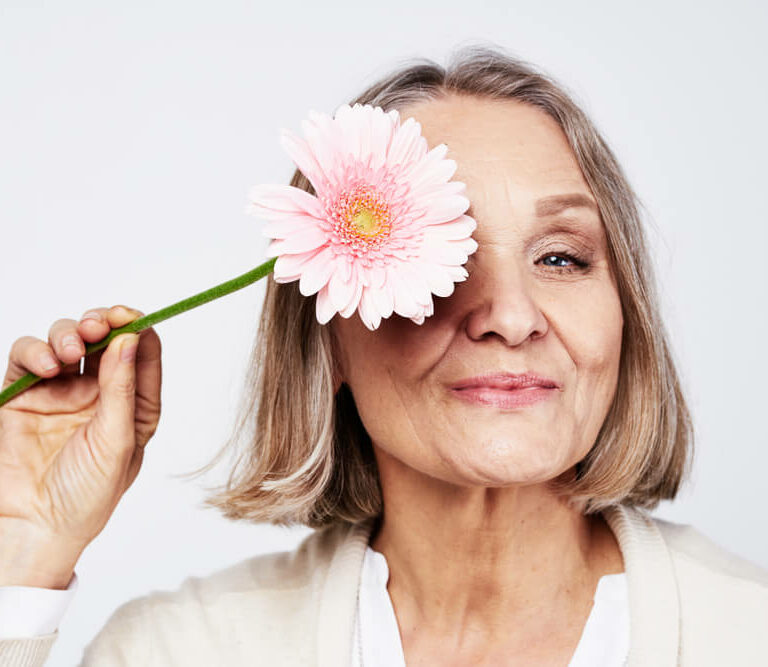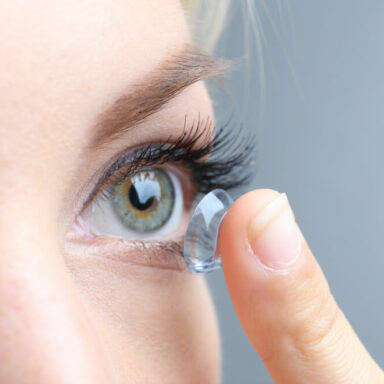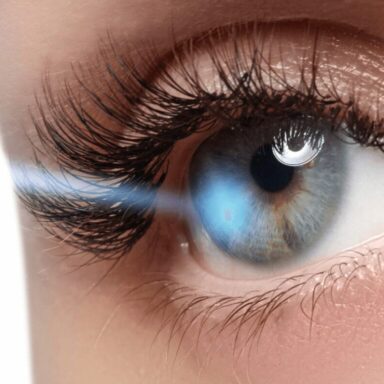You probably know that hot flushes and night sweats can be part and parcel of the menopause. But did you know that your eyes can be affected too?
Dry and itchy eyes, for instance, are very common during the menopause.1 Read on to find out how why your eyes might feel puffy, dry, itchy or just different during the menopause – and how to give them a bit of extra love and attention.
Menopause and dry eyes
There are lots of symptoms of the menopause – the point in life at which periods stop – and everyone will find it affects them differently.2 Dry, sore eyes are a common, but little-known, symptom.
One survey found that almost 2/3 of women who were going through the menopause, or in the lead up to it, had dry eyes. But only 16% of them realised that dry eye is a symptom of the menopause!1
What is dry eye?
Like its name suggests, dry eye is a condition where the eyes are drier than they should be. This can be because they don’t make enough tears or the tears evaporate too quickly.
The signs and symptoms of dry eye usually affect both eyes and can include itchiness, redness, a burning sensation, watery eyes, heavy feeling eyes, blurry vision, a gritty feeling, sensitivity to light and eye strain.3,4
Why menopause can make eyes dry and itchy
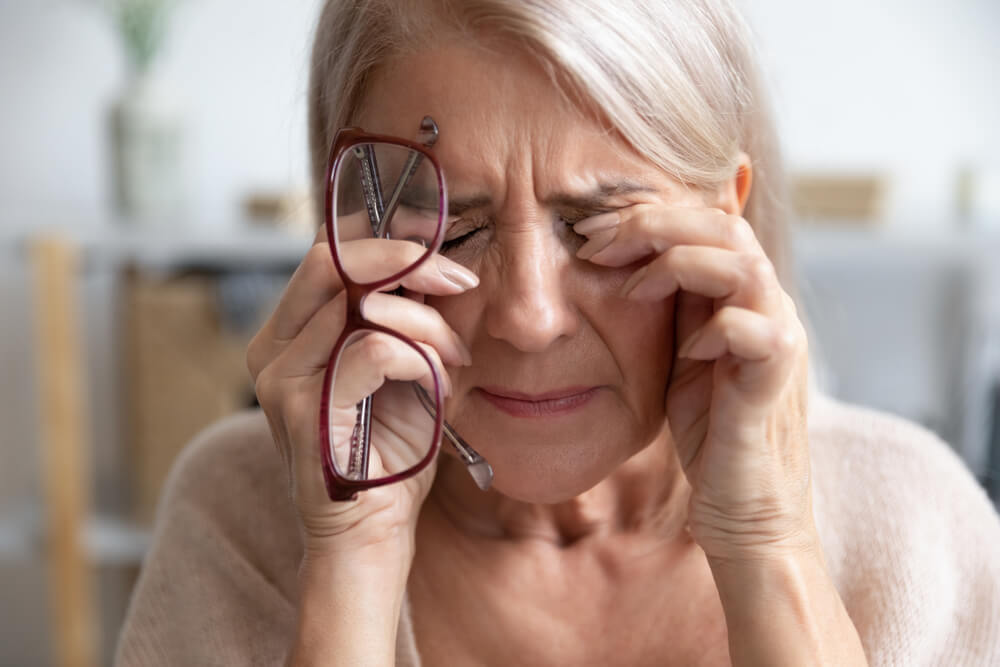
We make fewer tears as we get older anyway – and is more common in the over-50s.5 But it’s particularly common in women, especially those who are going through the menopause.2
This is to do with the changes in levels of oestrogen and other sex hormones that are going on around the menopause. Our sex hormones are involved in many things tear-related. That includes making tears (and getting the ingredients right) and making sure they drain away properly.
Sex hormones also help keep the cells on your eye’s surface healthy – and the nerves behind it in good shape.2,6
So, it’s perhaps not surprising that our eyes can feel dry and sore when hormone levels change around the time of the menopause.
How to treat dry eyes
The good news is that there are lots of things you do to give your eyes the relief they crave.
Small changes to your lifestyle can help stop your tears from drying up too quickly. Why not try:
- Limiting your screen time – looking away from the screen now and again can help keep your eyes moist. Try following the 20/20/20 rule. Give yourself a 20-second from your screen every 20 minutes and look at something 20 feet away.7
- Keeping smoke out of your eyes. Smoke – including other people’s smoke – is a common trigger for dry eye.8
- Putting on your sunnies. Wraparound sunglasses help protect your eyes from wind and can be extra-useful when running or cycling.5
- Pumping up the moisture – with a humidifier. This might help you sleep better too – one study found humidity of 40-60% to be just right for a good night’s sleep.9
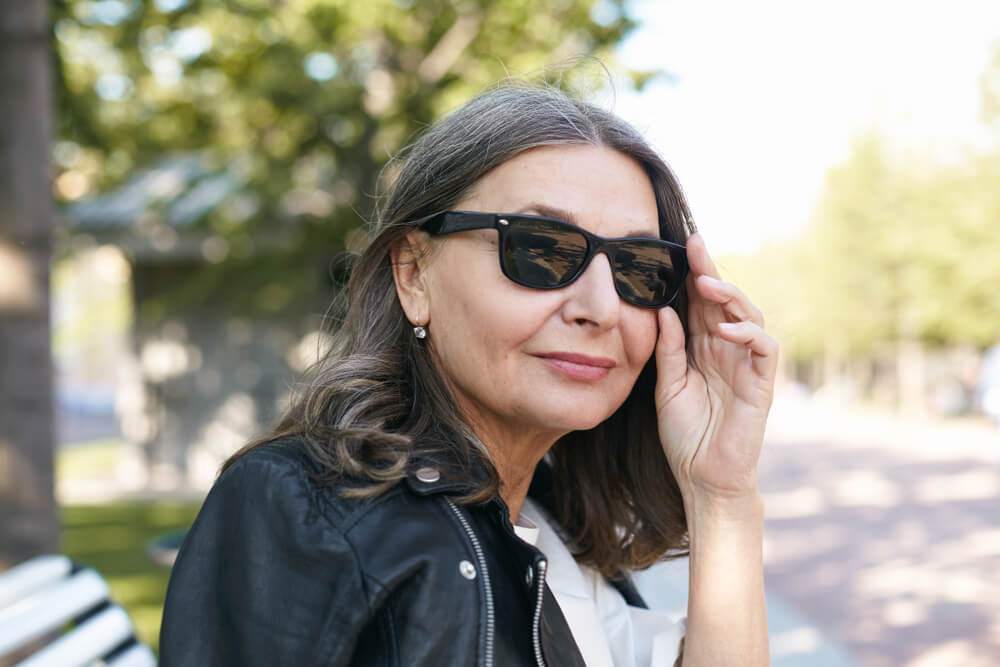
You can also try topping up your tears10. Eye drops, such as Cationorm®, can replenish your body’s supply of tears, rehydrate and quickly relieve discomfort, particularly if your symptoms are mild.
Top tip
Make a lunch date! Staring at a computer screen for hours at a time can make your eyes drier. If you find it hard to take a break, why not arrange to have lunch with a friend, rather than eating a sandwich at your desk? Or swap the odd email for a phone call to give your eyes a break.7
Does HRT cause or help dry eye?
It’s natural to think that HRT – hormone replacement therapy – will help with dry eyes, after all it can ease other menopause symptoms such as hot flushes.11 But it isn’t clear if it helps with dry eye or not.
Some studies have found that HRT makes dry eye worse, while others have found it helps make dry eyes better.5 Your GP will be able to tell you more about taking HRT to help you through the menopause.
Other tips for helping manage your menopause symptoms include:2,12
- Taking herbal supplements, such as St John’s wort (have a chat to your GP or pharmacist about this)
- Making sure you are getting enough vitamin D
- Trying yoga or experimenting with mindful breathing
- Seeing if acupuncture helps
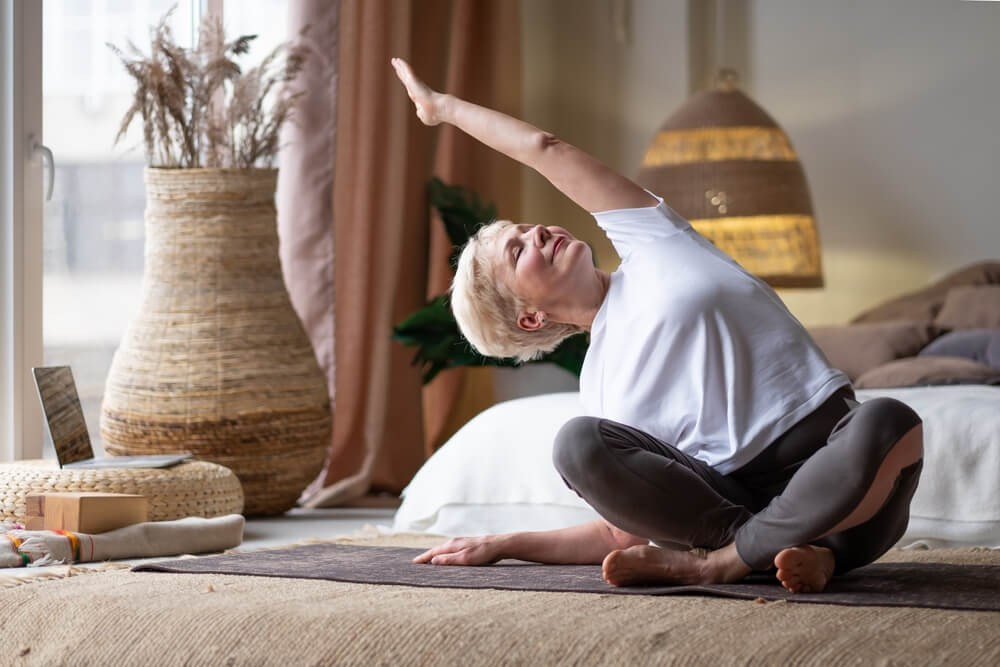
Menopause and glaucoma
Glaucoma’s a common condition, especially as we get older, and it can lead to loss of vision if it’s not caught and treated early.
It’s usually caused by fluid building up in the front of the eye. This increases the pressure inside the eye and that damages the optic nerve – the communication cable between your eye and your brain.
Glaucoma normally develops gradually over many years and many people don’t realise they have it until it comes up in an eye test. But, very occasionally, it can come on suddenly and cause symptoms such as:
- A red eye
- Severe eye pain
- A headache
- Nausea and vomiting
- Rings or rainbows in your vision
- Blurred vision
If you do develop these symptoms suddenly, they may require immediate treatment and should go to your nearest eye casualty unit or A&E as soon as you can.13
Does menopause affect glaucoma?
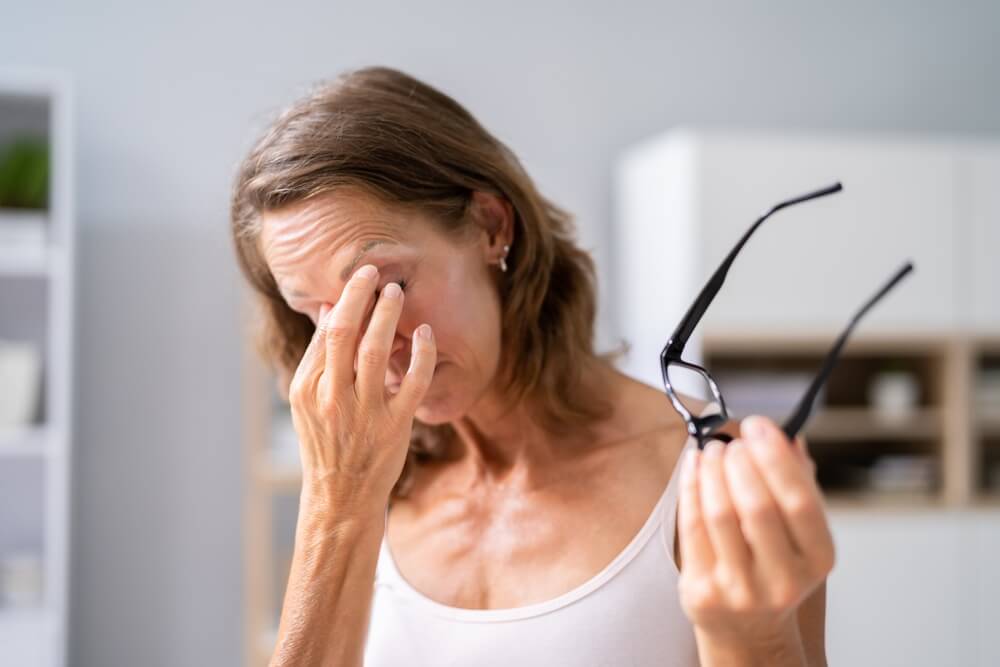
Scientists aren’t sure! Some studies do suggest that the menopause might increase the risk of having glaucoma. It’s known that women who have an early menopause, for instance, are more likely to develop glaucoma.
One idea is that oestrogen protects the optic nerve – the highway between the eye and brain – from damage. So, when oestrogen levels fall with the menopause – particularly if a woman’s still young – the optic nerve is more vulnerable to damage.14
Studies also show that pressure in the eye goes up a bit during the menopause.15
But we also become more susceptible to glaucoma as we age and so experts aren’t sure how much the menopause has to do with it all!16
Did you know?
Eye shape may change bit during the menopause, making contact lenses less comfortable.17 Your optician will be able to talk you through the different types of contacts that you can try.
Eye twitching and menopause
The first thing to say that if your eye is twitching, don’t worry. A twitchy eye is very common – most of us will have one now and again – and, while it can be annoying, it’s usually harmless.18
But if it is bothering you, it’s worth having a think about what might be behind it.
Stress, drinking a lot of alcohol, being really, really tired and drinking a lot of caffeine are all triggers.19
While there’s no direct link between the menopause and twitchy eyes, around 6 in 10 women who are going through the menopause have trouble sleeping.
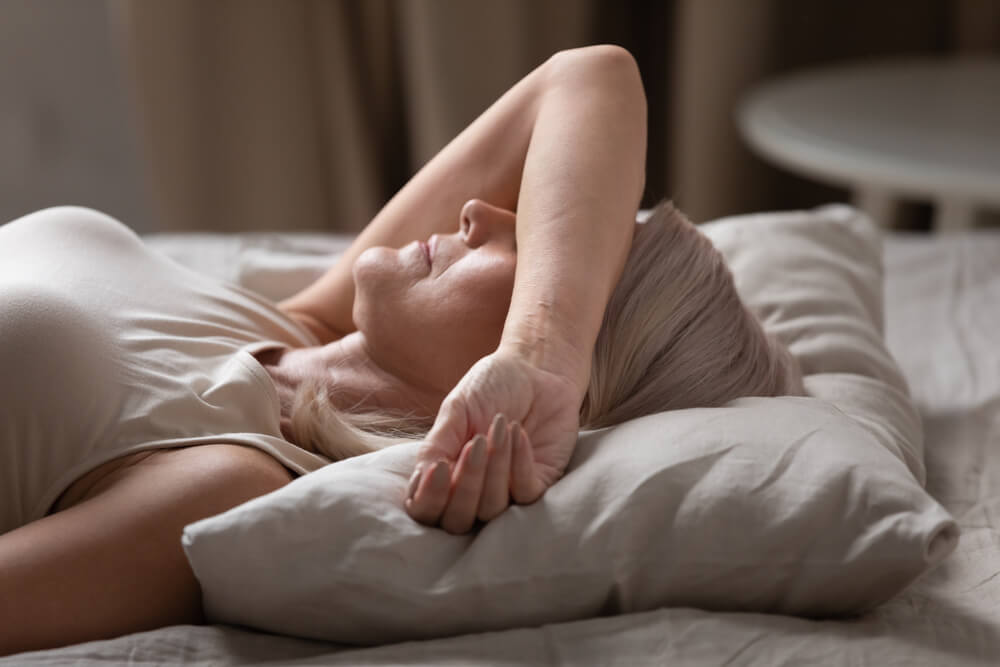
Tips to make it easier to get a good night’s sleep during the menopause include exercising regularly (but not right before bed), not eating spicy food late on, oh, and not having too much caffeine.20 (Experts say we shouldn’t really have more than around 400mg of caffeine a day – that’s around four cups of coffee.21)
If your twitch lasts more than two weeks, though, it’s a good idea to see your doctor, as it might be a sign of an undiagnosed medical condition or a reaction to some medicines you are taking.18
Top tip
Eat your grains! Advice to help with menopause symptoms, including perhaps those affecting eyes, includes eating six portions of grains a day.2 Whole grain foods include wholemeal bread, brown rice, quinoa and oatcakes.22
Menopause and puffy eyes
If you notice your eyes are a bit swollen and puffy around the time of the menopause, you are not alone.
Puffy eyes, or to give them their less flattering name, bags under the eyes, are common, especially as we – and the muscles around our eyes – get older.23
Not getting enough sleep – something that happens a lot during the menopause – can make eyes look puffy too.23
Cool compresses can help ease the swelling,23 while making small lifestyle changes can help you get more sleep.
Top tip
Channel some of a cucumber’s coolness by placing two slices over your eyes. Then lie back and relax for ten minutes. If you don’t have any cucumber, wet teabags or a cold, wet facecloth will also help put the sparkle back in tired, puffy eyes.23


